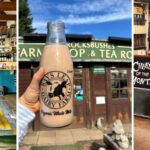- Feel Good
- 6th Mar 2021
- 922 Views
- 0
- 1 minutes
How to live with a terminal illness

A decade after being given the all-clear, Sue Buzzeo was told that her cancer was back – and this time, it was incurable. Here, she shares her story with HLN: the plans she’s made, how she told her children, and how the prospect of death has changed her outlook on life










Comments